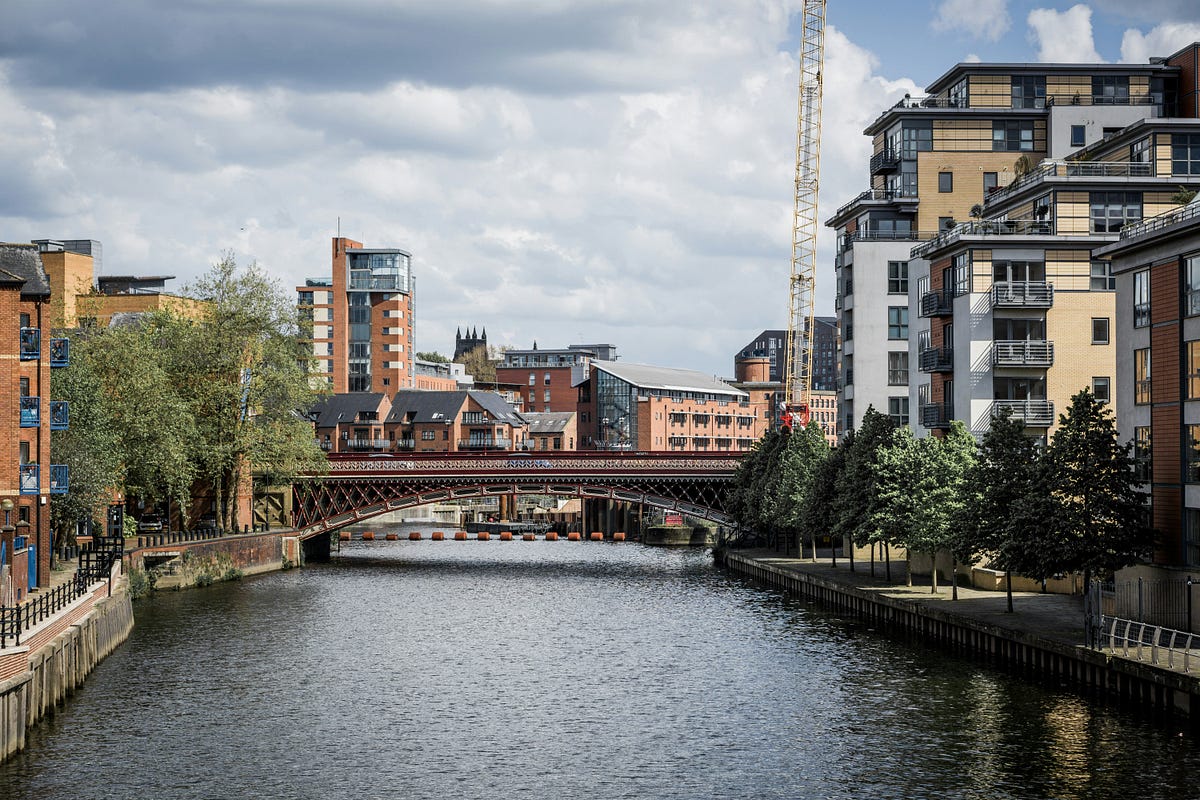Introduction
Liverpool, one of the most iconic cities in the UK, offers students a dynamic academic and social experience. With its rich history, vibrant culture, and a welcoming environment, Liverpool is becoming an increasingly popular destination for international students. However, before you set your sights on this exciting city, understanding the cost of living in Liverpool is crucial. This guide will break down the cost of living in Liverpool, give you insights into the average rent in Liverpool, highlight the cheapest areas in Liverpool, and provide helpful tips to budget effectively while studying abroad.
Cost of Living in Liverpool: A Breakdown
Liverpool, as one of the major cities in the UK, offers a wide range of living expenses, but it’s also one of the more affordable cities for students compared to places like London or Manchester. The average cost of living in Liverpool will vary based on your lifestyle, but it’s important to be aware of the main expenses you’ll encounter during your time studying in the city.
Accommodation Costs in Liverpool
Student accommodation typically takes up the largest chunk of your budget. Prices for student accommodation in Liverpool depend on factors such as location, type of housing, and whether you prefer to share or live alone. Generally speaking:
- Shared rooms: If you choose a shared room in student housing, you can expect to pay between £300 and £500 per month, depending on the area.
- Private studios: Renting a private studio apartment in Liverpool typically costs between £550 and £850 per month. The higher-end properties are usually located near the city centre or popular student areas.
- University halls: University-managed accommodations like halls of residence often range from £450 to £700 per month, which includes utilities. Prices vary depending on the amenities and distance to your university.
If you are looking for affordable housing, the cheapest areas in Liverpool for students include Kirkdale, Anfield, and Wavertree. These neighborhoods are slightly away from the hustle of the city centre but still offer great access to public transport and essential amenities.
Living Expenses in Liverpool: Budgeting for Essentials
Once you’ve figured out your accommodation, it’s time to think about other cost of living in Liverpool. These include food, transportation, utilities, and entertainment. Here’s a rough estimate of your monthly spending on each:
- Food: On average, students spend around £150 to £250 per month on groceries. If you eat out regularly, you can expect to spend an additional £30 to £80 per week at local cafés and restaurants.
- Transportation: Liverpool has an excellent public transport system, with buses and trains connecting all major areas of the city. The cost of a monthly travel pass ranges from £50 to £70, depending on the zones you need to travel across. If you plan on cycling, you can save money by opting for a bike rental scheme or purchasing a second-hand bike.
- Utilities: For students living in private accommodation, utility bills (electricity, water, and gas) can cost between £100 and £150 per month. Many student halls and university accommodations include utilities in their rent, which can help reduce unexpected costs.
- Entertainment: As a student in a vibrant city like Liverpool, you’ll likely want to spend some of your budget on social activities. Expect to pay around £20 to £50 per month for things like cinema tickets, pub visits, and museum entries. Students can also benefit from discounted rates and student offers.
Average Rent in Liverpool: Insights for Students
When it comes to average rent in Liverpool, it’s clear that you don’t have to break the bank to find a decent place to live. In fact, Liverpool is much cheaper than other large cities like London, Manchester, or Edinburgh.
- City centre apartments: Renting an apartment in the city centre can cost you between £700 and £1,200 per month for a one-bedroom flat. However, this varies based on the property’s proximity to the University of Liverpool and local amenities.
- Suburban areas: If you choose to live in the outskirts, such as Toxteth or Crosby, rent prices typically drop to around £500 to £700 per month for a one-bedroom apartment.
You can save even more by opting for a shared flat or student housing in these areas.
Cheapest Areas in Liverpool for Students
When it comes to choosing a neighborhood, here are some of the most affordable and student-friendly areas in Liverpool:
- Wavertree: Located just a short distance from the University of Liverpool, Wavertree is a popular and affordable choice for students. The area offers easy access to public transport, a variety of shops, and low-cost accommodation.
- Anfield: Known for its rich football culture, Anfield also offers some of the best cheap accommodation in Liverpool. If you don’t mind being a bit further from the city centre, this area is perfect for students looking to keep their rent low.
- Kirkdale: Another affordable area with good transport links, Kirkdale is a great choice for students who want to balance cost and convenience. Properties here are priced competitively compared to the city centre.
- Edge Hill: Just slightly outside the main city centre, Edge Hill offers good options for students looking for an affordable place to live, with rents averaging between £450 and £700.
Living Costs for International Students in Liverpool
International students will find that cost of living in Liverpool for Indian Students are generally affordable compared to other major UK cities. However, it’s important to plan your finances well. On average, international students in Liverpool can expect to spend anywhere between £800 and £1,200 per month, depending on lifestyle choices and living arrangements.
Conclusion
The cost of living in Liverpool is relatively affordable for students, making it an excellent choice for studying abroad. While rent and living expenses in the city can vary depending on your preferences and the area you choose, Liverpool provides plenty of affordable housing options, especially in neighborhoods like Wavertree and Anfield.
With its mix of cultural attractions, student accommodation, and thriving job market, Liverpool remains an attractive destination for international students. By budgeting carefully, students can enjoy all that this dynamic city has to offer while keeping their expenses under control.
FAQ
What is the average cost of living in Liverpool for students?
The average cost of living in Liverpool for students typically ranges from £800 to £1,200 per month. This includes rent, food, utilities, transportation, and entertainment. Costs can vary based on lifestyle choices and the type of accommodation you choose.
How much is student accommodation in Liverpool?
Student accommodation in Liverpool generally ranges from £300 to £700 per month for shared rooms or university halls. Private studios and apartments typically range from £550 to £850 per month, depending on the area and amenities.
What are the cheapest areas to live in Liverpool?
Some of the cheapest areas in Liverpool for students include Wavertree, Anfield, Kirkdale, and Edge Hill. These areas offer affordable rent and good transport links to the city centre.
How much do utilities cost in Liverpool?
Utility bills (electricity, gas, and water) in Liverpool typically range from £100 to £150 per month for students in private accommodations. Many student halls and university-managed accommodations include utilities in their rent.
What is the cost of living for international students in Liverpool?
For international students, the cost of living in Liverpool generally range from £800 to £1,200 per month, depending on their accommodation choice and lifestyle. This includes rent, food, transportation, and other living costs.
What is the average rent in Liverpool for a one-bedroom apartment?
The average rent in Liverpool for a one-bedroom apartment is between £700 and £1,200 per month, depending on whether you are in the city centre or a more suburban area.
How much does transportation cost in Liverpool?
A monthly public transport pass in Liverpool costs between £50 and £70, depending on the zones you travel through. Students can save by opting for bike rentals or walking for shorter commutes.
What are the average food costs in Liverpool for students?
On average, students in Liverpool spend between £150 and £250 per month on groceries. If you prefer eating out, expect to spend an additional £30 to £80 per week.
What are the cost of living in Liverpool compared to other UK cities?
Liverpool is one of the more affordable cities in the UK for students. Compared to cities like London and Manchester, the cost of living in Liverpool is lower, making it a great option for budget-conscious students.
What is the cost of living in Liverpool for Indian students?
The cost of living in Liverpool for Indian students typically ranges from £700 to £1,200 per month, depending on accommodation, lifestyle, and personal spending. Key expenses include rent (£400–£700), groceries (£150–£250), and transport (£50–£60).







![Tata Scholarship: A Comprehensive Guide for Students 2025 [Updated] Tata Scholarship: A Comprehensive Guide for Students 2025 [Updated]](https://uninist.com/blog/wp-content/uploads/2025/04/Tata-Scholarship.webp)
